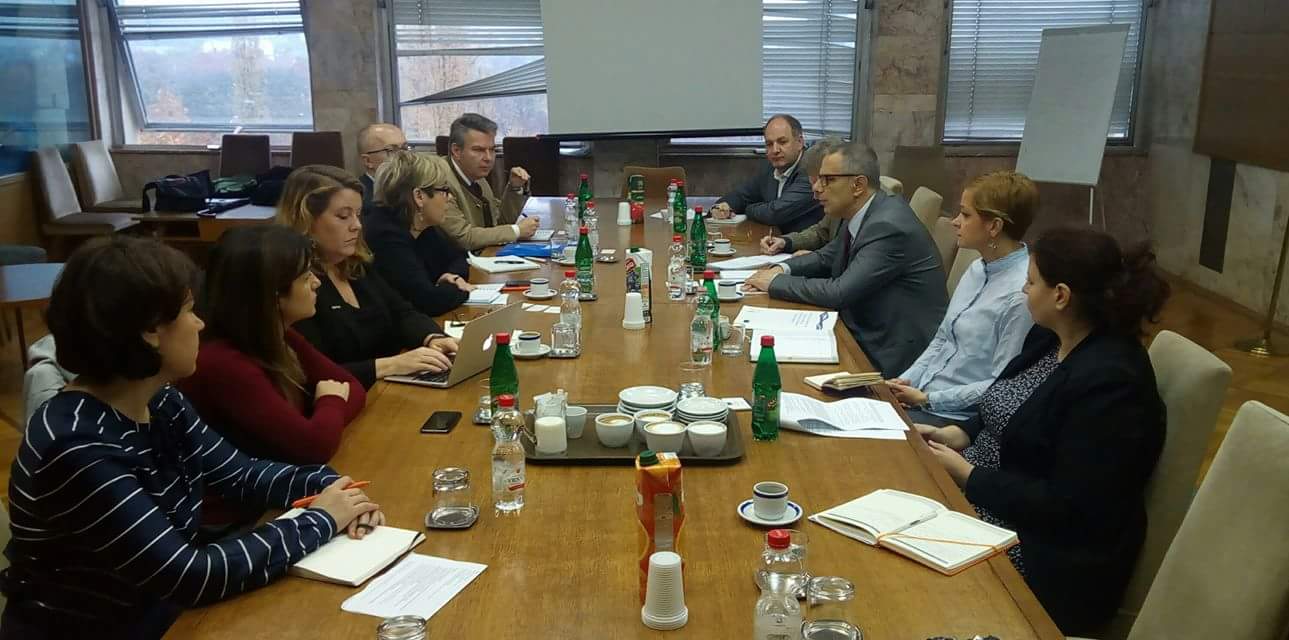The report on the Conference of INGOs’ fact-finding visit in Belgrade that took place from 13 to 14 November 2017, has been published and sent to the Serbian authorities for comments. It will be presented and discussed together with the representatives of Serbian civil society and Serbian authorities on 26 January 2018 during the winter session of the Conference of INGOs.
The report starts by explaining how during the visit co-organised by the Civil Rights Defenders in Belgrade, with the help of the Permanent Representation of Republic of Serbia to the Council of Europe, the delegation explored and discussed the national and local mechanisms which allow NGOs to take part in public policies and the political decision-making process. Building a pluralistic, vibrant and open society based on the rule of law requires unwavering commitment on the side of the Government. As the report suggests, while there has been notable progress in the development of the legal and institutional framework for democracy, human rights and the rule of law since 2000, serious issues with respect to the freedom of media and expression, access to public information and data protection, and independence of the judiciary and public prosecutors, in particular, still persist. A strong participatory democracy in Serbia will not be established until these issues are addressed.
The report states that public authorities recognized that civil society and NGOs play an important role in ensuring the principles of human dignity, freedom, equality, the rule of law and respect for human rights. They also underlined that Democracy can prosper only by civic engagement in the policy-making process. That is why public authorities should value media and public opinion, the constructive role that NGOs and media play in supporting democratic processes and reinforce accountability and transparency of public institutions. To do this, we urgently recommend improving the enabling environment for civil society in Serbia, specifically by protecting the independence of NGOs and their watchdog function and enacting the draft Strategy for the Development of an Enabling Environment for Civil Society 2016-2020. We strongly invite public authorities to strengthen support for NGOs and media platforms focusing on the fight against corruption and efficiency of judiciary.



